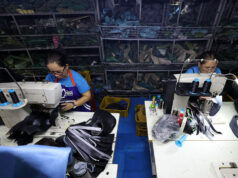THE Department of Finance (DoF) said the next round of tax reform will offer companies “superior” incentives, and dismissed worries about the new regime as “fear-mongering.”
“The fear-mongering about the removal of incentives should stop. Package 2 will actually give superior incentives for the right reasons, such as the creation of good jobs, investment in research and development, and expansion in the countryside among others,” Finance Undersecretary Karl Kendrick Chua said in a statement.
House Bill No. 313 or the Corporate Income Tax and Incentives Reform Act (CITIRA) was approved at committee level last week, and is outed by the DoF to make incentives more time-bound and performance-based.
The DoF said the corporate income tax of 30%, is the highest in ASEAN, and the bill proposes to gradually lower it by two percentage points every other year to 20%.
Mr. Chua said the incentives offered under the CITIRA bill will help boost job creation, worker training, domestic sourcing of materials, research and infrastructure development in remote areas.
He said workforce-heavy industries such as manufacturing and the IT-BPO sector will benefit from the ability to deduct more of their direct labor expenses.
“For example, Package 2 allows an additional deduction of up to 50 [%] on direct labor expense. This means that for every job created, companies can deduct up to 150[%] of direct labor expense, compared to just 100[%] in the present regime,” Mr. Chua said.
He also said companies investing in upgrading the skills of their Filipino employees may receive up to 200% in deductions on training costs, double the current 100%.
Also under the DoF proposal, inventors may receive up to 150% in deductions if they buy and use domestically-sourced inputs which will likewise benefit local industries and producers.
To boost infrastructure development, he said companies in far-flung areas may deduct up to 100% on their public infrastructure, utilities, irrigation and drainage expenses.
Other incentives, according to Mr. Chua, will provide investors additional deductions on research and development firms and allow companies to depreciate buildings and machinery used in some projects at an accelerated rate. Such perks will boost innovation and allow faster cost recovery.
“We are also introducing an allowance which encourages firms to reinvest their profits into registered projects, or the reinvestment allowance. This will allow firms to claim up to 50 percent of profits reinvested into registered projects as a deduction for income tax purposes within five years from the time of reinvestment” he added.
However, incentives will be capped at five years while removing perpetual 5% on gross income earned and limiting tax holiday.
The bill also requires investors to reapply after the five-year or seven-year period for another five years of incentives.
Currently, DoF estimates showed firms with incentives pay around 6% to 13% effective tax while those enjoying no incentives pay the regular 30% tax.
The current incentive system cost the government, according to DoF’s estimates, about P1.2 trillion from 2015 to 2017.
“So you see, we are not anti-incentives, and it is not true that we are removing them altogether,” Mr. Chua said. — Beatrice M. Laforga



